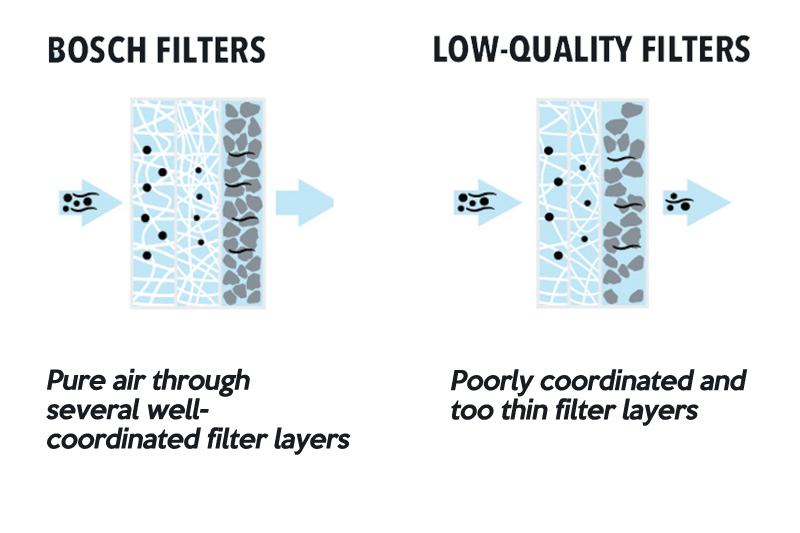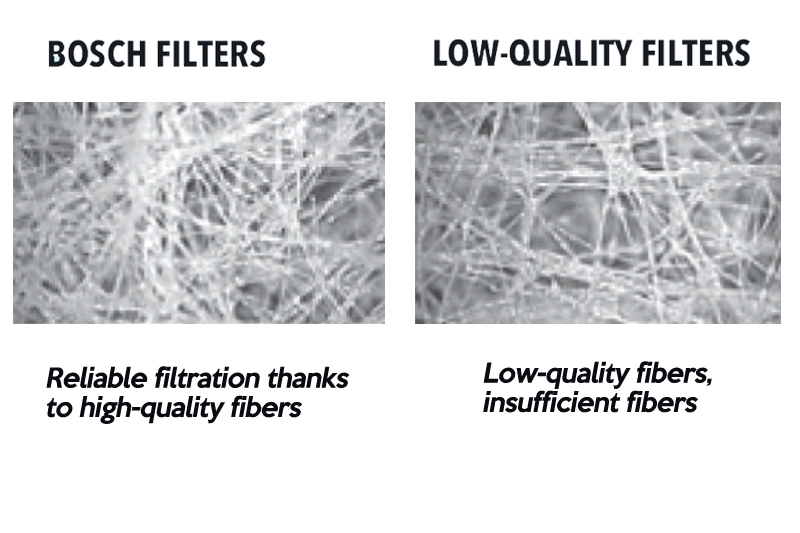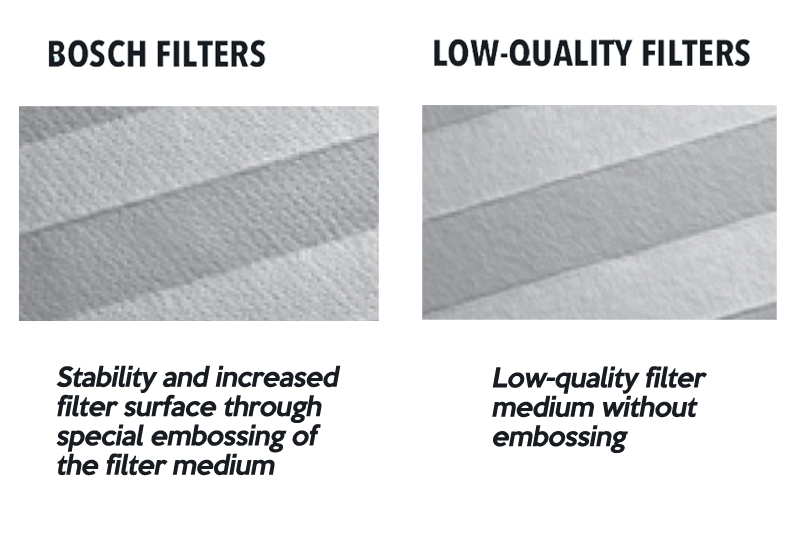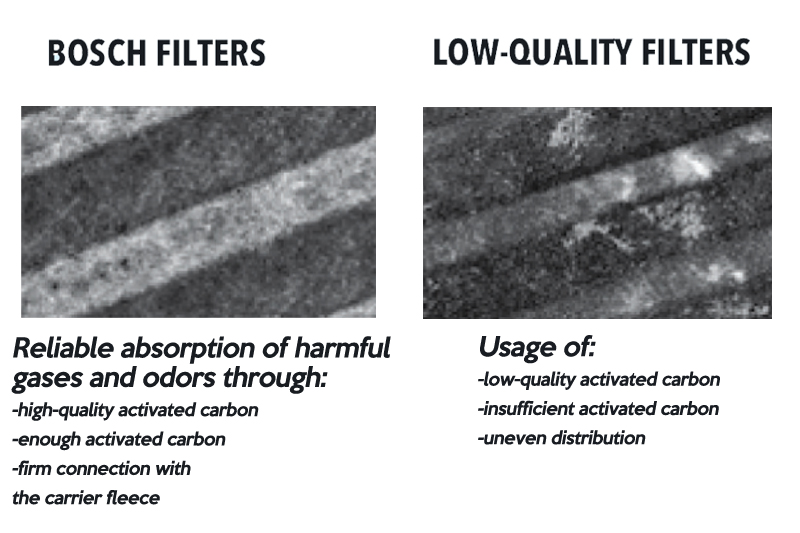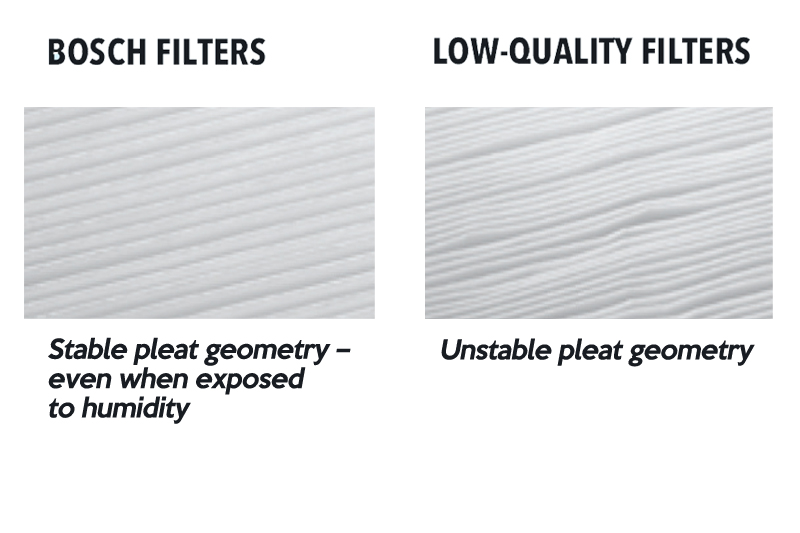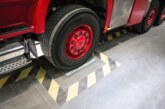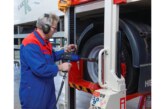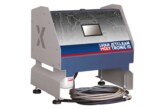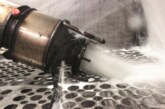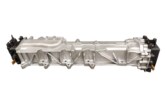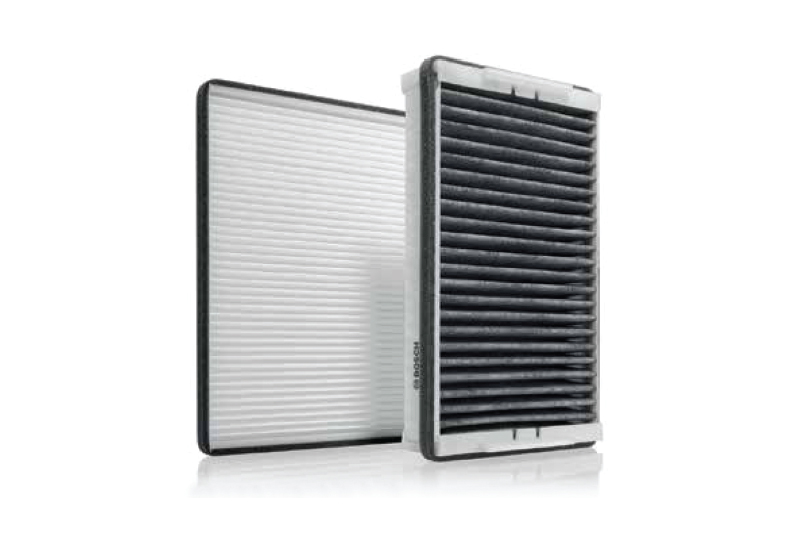
Bosch goes into detail on its filters offering and why opting for low-quality products will end up costing you in the long-run.
Be safe
Commercial vehicle drivers often pass their working hours behind the steering wheel – including their breaks and even the nights. For their health, clean cabin air is thus indispensable. Bosch activated-carbon filters ensure the cleanest air possible as they protect against pollen and fine dusts as well as foul-smelling and harmful gases. This increases the driver’s power of concentration on the roads. But this filtration also increases the vision inside the vehicle as it reduces the deposits on the windows and windshield.
The company’s cabin filters are specifically geared to the high demands commercial vehicles place on them. They meet two or three times the vibration resistance, dust retention capacity and service life of passenger-car cabin filters. This is also reflected by their replacement intervals: depending on the vehicle manufacturer’s specifications, Bosch recommends replacing them every 200,000-300,000km.
Quality pays off
For professional applications, high quality is of particular importance. Bosch cabin filters clean the air by means of several well-matched layers. High-quality fibers and a large filter surface ensure high reliability and stability. Harmful gases and smells are absorbed by high-quality activated carbon. The shape and size perfectly geared to the respective application prevents unfiltered air from bypassing the filter. Therefore, relying on Bosch quality pays off for professionals.
In comparison: Bosch filters and low-quality filters